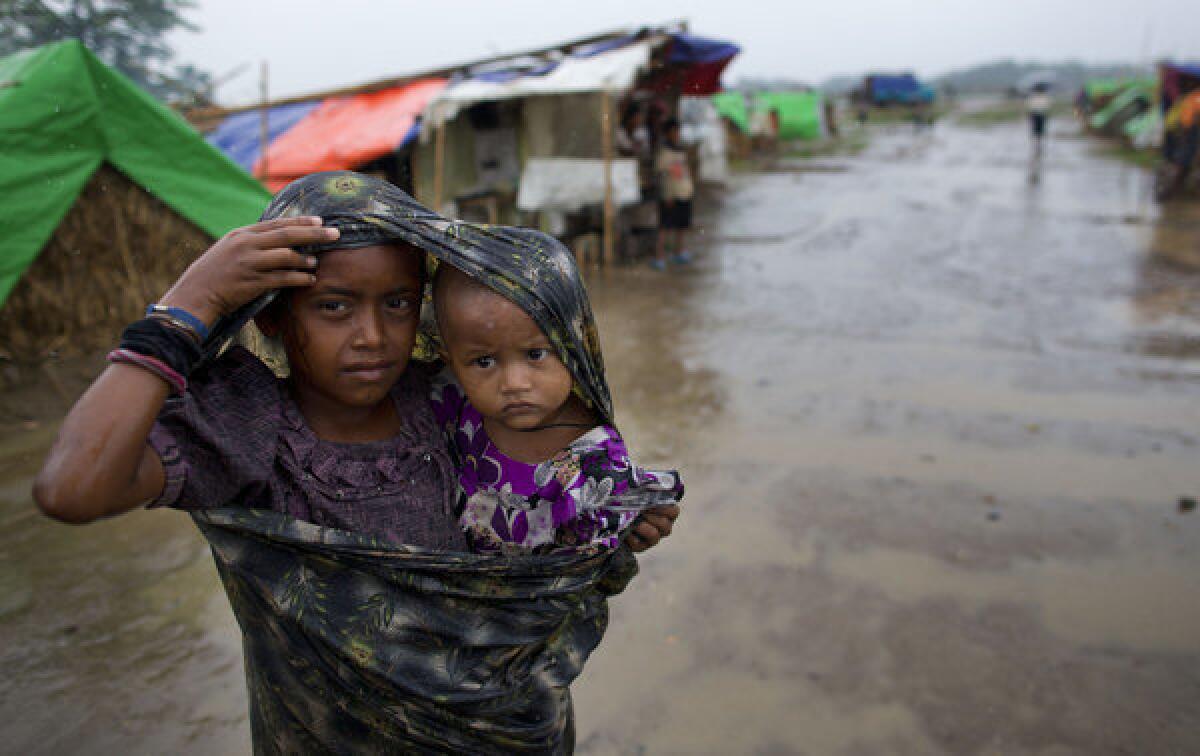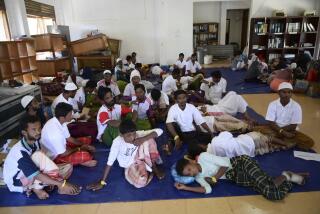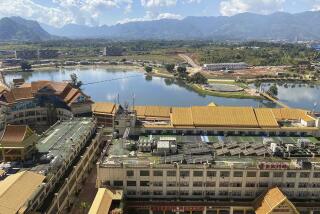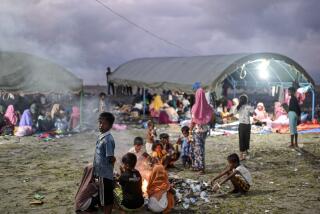Boat capsizes off Myanmar; dozens missing and feared dead

NEW DELHI – A boat carrying approximately 100 Rohingya Muslims capsized late Monday off the coast of Myanmar with many of its occupants feared dead, UN officials said, as the region braced for a cyclone expected to slam low-lying areas inhabited by the embattled minority.
The boat apparently ran into some rocks off Pauktaw township in western Rakhine state and sank as people were evacuating, with approximately 40 passengers rescued and 60 still missing, said Ashok Nigam, United Nations director and resident coordinator in Myanmar, based on preliminary information.
The UN and Myanmar government have warned in recent days that Cyclone Mahasen, named after an ancient Sri Lankan king, could endanger large numbers of people living in vulnerable areas as early as Thursday or Friday.
On Monday, Myanmar state television reported that more than 5,000 people, including many Rohingya displaced by communal violence in June and October of last year, had been evacuated from makeshift camps to higher ground in advance of the cyclone.
This is a fraction of the tens of thousands of Rohingya living in camps in western Myanmar after their wooden houses were torched or otherwise destroyed in last year’s sectarian violence between majority ethnic Rakhine Buddhists and the minority Rohingya Muslims, killing at least 190 people. The officially stateless Rohingya are not recognized as citizens either by Myanmar or neighboring Bangladesh.
Aid agencies say many displaced Rohingya, including about 45,000 people living in low-lying areas of the state capital Sittwe, could face difficulties from heavy rain and mudslides.
The slow-moving storm was heading northwest up the Bay of Bengal, with the eye expected to hit the Bangladesh port city of Chittagong late in the week. Authorities in Sri Lanka reported Tuesday that seven were killed, two were missing and 3,000 left homeless by Mahasen this week.
Tropical Storm Risk, a meteorological venture involving University College London’s Benfield Hazard Research Center, has projected that Mahasen could turn into a Category 1 “severe cyclonic storm” with wind speeds reaching 80 mph.
So far, however, the good news is that the storm “is struggling to intensify,” said Adam Lea, research scientist with Tropical Storm Risk, and could remain a strong tropical storm when it makes landfall.
“The bad news is, the area where it’s expected to come ashore is highly populated and in an area prone to storm surges,” he added. Surges tend to occur in areas such as the Gulf of Mexico with shallow sloping sea beds that allow the wind to pull ocean water on shore, leading to flooding, Lea said.
In 2008, Cyclone Nargis slammed into Myanmar’s Irrawaddy Delta, south of the commercial capital of Yangon, killing as many as 140,000 people. Human Rights Watch said in a statement that as many as 70,000 displaced ethnic Rohingya and Kaman Muslims currently living in flood-prone paddy fields and coastal areas could be hit by Cyclone Mahasen’s storm surges.
“If the government fails to evacuate those at risk, any disaster that results will not be natural, but man-made,” said Brad Adams, the group’s Asia director.
As Myanmar has opened to the West in recent months, global attention has focused on its many ethnic and religious divisions. Myanmar, formerly known as Burma, is predominantly Buddhist, although approximately 5% of its 60 million people are Muslim. Hard-line Buddhist monks have recently mounted a high-profile campaign against Muslims.
The Rohingya have faced discrimination for decades in Myanmar and are often considered illegal migrants, even though some have lived in the country for generations. A government-appointed commission last month proposed doubling the number of security personnel in volatile Rakhine state and introducing family planning to limit population growth among Muslims.
“While keeping the two communities apart is not a long-term solution, it must be enforced at least until the overt emotions subside,” the report said, adding that the rising number of Muslims has “undermined peaceful coexistence.”
ALSO:
High-ranking Chinese official caught in anti-corruption net
Myanmar panel proposes measures to ease ethnic tensions
Prayer service remembers victims of Bangladesh building collapse
More to Read
Start your day right
Sign up for Essential California for news, features and recommendations from the L.A. Times and beyond in your inbox six days a week.
You may occasionally receive promotional content from the Los Angeles Times.






